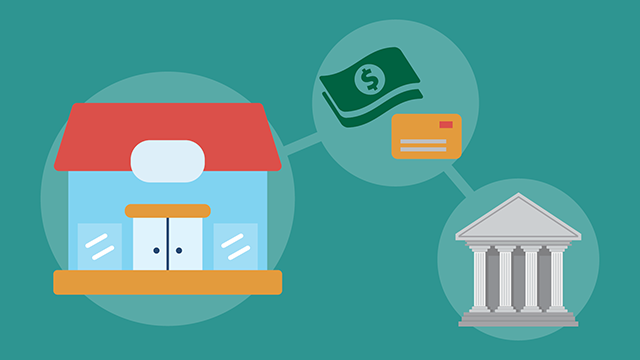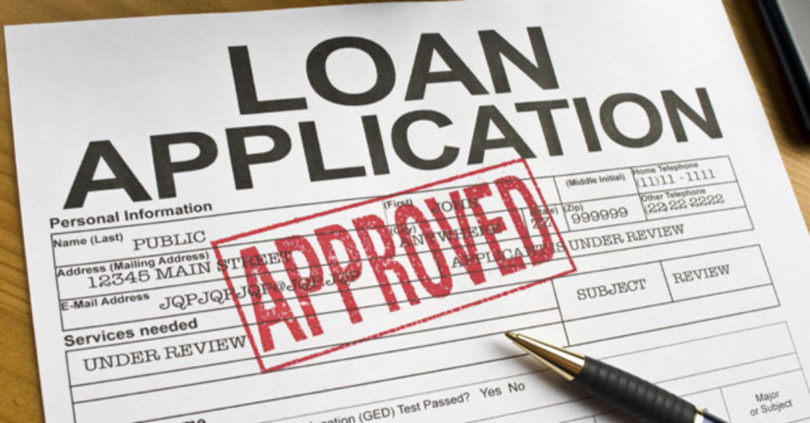Explore the Advantages of Pre Approval Student Loans for Your Education And Learning Journey
Explore the Advantages of Pre Approval Student Loans for Your Education And Learning Journey
Blog Article
Comprehending the Influence of Rates Of Interest on Home Loans for First-Time Buyers
Browsing the maze of home loans can be daunting for first-time buyers, particularly when interest rates play an essential function in forming their financial journey. The selection between set and adjustable-rate home mortgages lugs significant effects, impacting month-to-month budget plans and long-lasting financial stability. As interest rates rise and fall with financial shifts, recognizing their resolution comes to be vital.
How Rates Of Interest Are Figured Out
Rate of interest on mortgage are identified by an intricate interaction of economic elements and plans. The main chauffeur is the financial plan set by reserve banks, such as the Federal Get in the United States, which readjusts the federal funds price to affect financial task. When the central financial institution increases this price, borrowing comes to be extra expensive, often resulting in increased mortgage rate of interest prices. Conversely, decreasing the government funds rate can make borrowing cheaper, possibly minimizing home mortgage rates.
One more influential variable is inflation. Greater inflation usually brings about greater passion rates as lenders require even more return to counter the decreasing buying power of future settlements. Financial development also plays a critical duty; in periods of durable financial efficiency, demand for credit history increases, which can drive up rate of interest.
Additionally, the bond market substantially influences mortgage rates. Lasting interest prices, consisting of those for home car loans, are carefully connected to yields on government bonds. As bond yields climb, so do home loan prices, mirroring the increased cost of lasting borrowing.

Types of Rates Of Interest
Comprehending the different kinds of rates of interest is integral to comprehending how mortgage operate. There are primarily 2 categories of rate of interest that debtors experience: repaired and variable. A fixed rate of interest rate stays continuous throughout the term of the finance. This provides predictability in monthly settlements, giving borrowers with security and simplicity in budgeting. It is specifically helpful in settings where future rate of interest boosts are anticipated.
On the other hand, a variable rate of interest, likewise understood as a flexible price, rises and fall gradually, generally in action to adjustments in a defined benchmark or index. These rates commonly begin reduced than taken care of rates, which can be attractive to new purchasers. Nevertheless, they entail the danger of boosting in time, possibly causing higher general expenses if market rates increase.
Furthermore, some lenders use hybrid rate of interest, incorporating aspects of both taken care of and variable prices. For example, an initial period with a fixed price could be complied with by a variable rate. Comprehending these distinctions is vital for borrowers to make educated choices that straighten with their monetary situations and run the risk of resistance, as each type offers one-of-a-kind advantages and potential disadvantages.

Influence on Month-to-month Settlements
Regular monthly payments on home loans are directly influenced by the kind of rate of interest chosen, which can dramatically influence a borrower's economic preparation. Fixed-rate home mortgages use stability, as the rate of interest remains the same over the car loan's term, making sure that regular monthly repayments Discover More stay continuous. This predictability aids in budget planning, giving a clear economic image over the financing's duration. Alternatively, variable-rate mortgages (ARMs) originally existing reduced rate of interest prices, which can bring about smaller sized initial repayments. Nonetheless, these prices are subject to variations based upon market problems after the initial fixed period, possibly enhancing monthly obligations.
The selection in between a fixed-rate and a variable-rate mortgage can have immediate effects on a buyer's monthly budget plan. Fixed-rate finances protect versus market volatility, using satisfaction but often at a greater initial price compared to ARMs. For debtors planning to stay in their homes lasting, this can be advantageous. On the other hand, ARMs may suit customers expecting revenue development or those planning to market prior to the rate change happens, enabling them to capitalize on reduced settlements. Eventually, understanding these characteristics is essential for first-time buyers to manage their month-to-month payments properly and align them with their financial techniques.
Long-lasting Financial Ramifications
The option of passion rate type for a home finance prolongs beyond prompt month-to-month settlements, lugging significant lasting financial effects. A fixed-rate home loan, for instance, offers security by securing in interest rates for the period of the funding term, safeguarding borrowers from future price boosts.
Conversely, a variable-rate mortgage (ARM) generally starts with a lower rate of interest rate, which can cause reduced initial repayments. Over time, nonetheless, the rate can vary based upon market conditions, possibly causing greater repayments. This irregularity introduces a component of unpredictability, which can influence monetary stability if prices raise significantly.

Techniques for Handling Prices
Navigating rate of interest on home lendings requires strategic planning to enhance monetary end results. New homebuyers must think about securing in rate of interest rates when they are favorable, as this can protect them from potential price hikes before their lending closing. Price locks normally last in between 30 to 60 days and give an action of certainty in an often unstable market. Additionally, buyers might check out discount rate factors, which include paying an ahead of time cost to safeguard a lower rate of interest. This can bring about considerable financial savings over the lending's life-span, specifically if the purchaser plans to remain in the home long-term.
An additional method entails selecting the best car loan kind. Fixed-rate home mortgages supply stability, protecting customers from future price useful content boosts, while adjustable-rate home mortgages (ARMs) may use reduced preliminary rates with the threat of future adjustments. Customers ought to thoroughly examine their economic situation and danger tolerance when picking between these options (pre approval student loans).
Finally, preserving a strong article credit history profile is crucial. A greater credit history can dramatically improve negotiation power for more desirable rates of interest. Frequently assessing credit history reports, dealing with inaccuracies, and minimizing exceptional financial obligation can improve general credit reliability, thus positioning purchasers to protect one of the most beneficial rates offered.
Conclusion
A comprehensive understanding of passion prices on mortgage is important for first-time purchasers to make informed choices. Fixed-rate mortgages offer stability with predictable settlements, securing versus future price rises, while adjustable-rate home mortgages present first financial savings with prospective future price volatility. Evaluating the impact on month-to-month repayments and long-lasting economic health and wellness enables customers to line up choices with financial objectives and run the risk of resistance. Strategic monitoring of rate of interest can dramatically affect homeownership success and financial health.
When the central financial institution elevates this price, obtaining ends up being much more pricey, typically leading to raised home financing interest rates.In contrast, a variable interest price, likewise known as a flexible price, changes over time, generally in reaction to modifications in a defined benchmark or index.Furthermore, some lending institutions offer hybrid interest prices, combining elements of both taken care of and variable prices - pre approval student loans. A fixed-rate mortgage, for instance, supplies security by locking in passion prices for the period of the loan term, protecting debtors from future price rises. Novice homebuyers ought to consider securing in passion prices when they are beneficial, as this can protect them from possible rate hikes prior to their car loan closing
Report this page